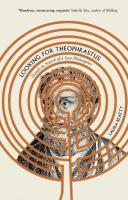
Atlantic (2022) h/b 341pp £16.99 (ISBN 9781838954369)
B. is an award-winning novelist. Quite by chance, she picked up a copy of Characters by Theophrastus (d. 287 BC) and was immediately fascinated. Knowing nothing about the author, she looked into the evidence for his life, found out that he was a pupil of Plato (d. 347 BC) and a companion of Aristotle (d. 322 BC) and known as the inventor of botany, being the first man to provide a systematic classification and explanation of plants and their uses. But despite this impressive curriculum vitae, no one seemed to have heard of him.
So she set out to bring the man back to life by following in his footsteps in his travels around the Greek world, attempting to match place to man (one of the few unsuccessful parts of her enterprise), while putting together as coherent a narrative about his life as can be constructed from the sources, and then pursuing his afterlife, or ‘reception’, into the modern world. In the process, she gently opens our eyes to the very different ways in which the ancients observed, thought about and responded to the world around them, together with her own very personal reflections on the matter.
She sets the scene clearly in its philosophical and historical context, well aware that the evidence for the extent to which Theophrastus and Aristotle worked together is much debated. She pictures them both under Plato's tutelage in his Lyceum in Athens and coming to the conclusion that Plato’s view of an unchanging world of fixed forms made at best theoretical sense but was a poor substitute for the intensive study of the real world in all its glorious changeability. B. quotes Aristotle’s observation about the difference between those who did empirical research and those, like Plato, who simply engaged in dialectic. (One point B. later builds on in relation to Characters is that they found ‘natural patterns’ to be as good an explanation as ‘cause and effect’ for why the world is as it is). So on Plato’s death in 347 BC they left Athens to continue their work analysing the natural world of plants and animals in Assos and then Lesbos.
Here B.’s enthusiasm gets the better of her in claiming that Aristotle and Theophrastus ‘invented science’. It is true that they, like many ancients, attempted to draw rational conclusions from empirical observations—and there is no argument that their work in this area represented an intellectual advance of unparalleled brilliance— but science is a methodology whose essence is the attempt to demonstrate the truth of a hypothesis by repeated experiment. No ancient, to our knowledge, did that. Testing to see if something works, which men and animals have always done, is a quite different exercise.
All this B. sets against the turmoil of the political world of Athens at this time, making life rather difficult for non-Athenians like Theophrastus and Aristotle. Philip of Macedon in the north was threatening to invade, and B. does a good job of describing the tensions this provoked in Athens, Demosthenes urging the city to resist, Aeschines and the panhellenist Isocrates to compromise.
In 342 BC Philip invited Aristotle to become Alexander’s teacher. This proved irresistible, while also offering a new location for research, and off to Macedon, she suggests, they both went. It did not last. A few years later, Alexander was off soldiering. The two clearly could not return to Athens at that particular time, and split up. But in 335 BC, when it was clear that Macedon had ‘won’, Aristotle did return as head of Plato’s Lyceum. In 323 BC, when Alexander died, he left Athens and Theophrastus took over from him; Aristotle died a year later and left his whole library, complete with all his works, to Theophrastus. (B. suggests that Aristotle’s works were destroyed in the fire that consumed various papyrus-storing warehouses in Alexandria in 48 BC; in fact they had already been removed from Athens in 86 BC by Sulla and deposited in Rome.)
B.’s account of the ‘reception’ of Theophrastus down the millennia is dominated by her belief, passionately argued, that Theophrastus’ Characters was a major influence on Chaucer and therefore on the whole development of the modern novel and the notion of ‘personality’. She agrees that she has to stretch the evidence perhaps further than it will go, but your reviewer, whose expertise on the question is non-existent, found it thrilling reading and far more persuasive than most of what currently and so drearily passes for ‘reception’ in the classical world.
Though B. admits Theophrastus continued to elude her, this is a richly imagined and beautifully written account of Theophrastus’ world, teeming with characters and incidents and provocative observations. Her chapter on Characters alone would be worth the price.
Peter Jones
